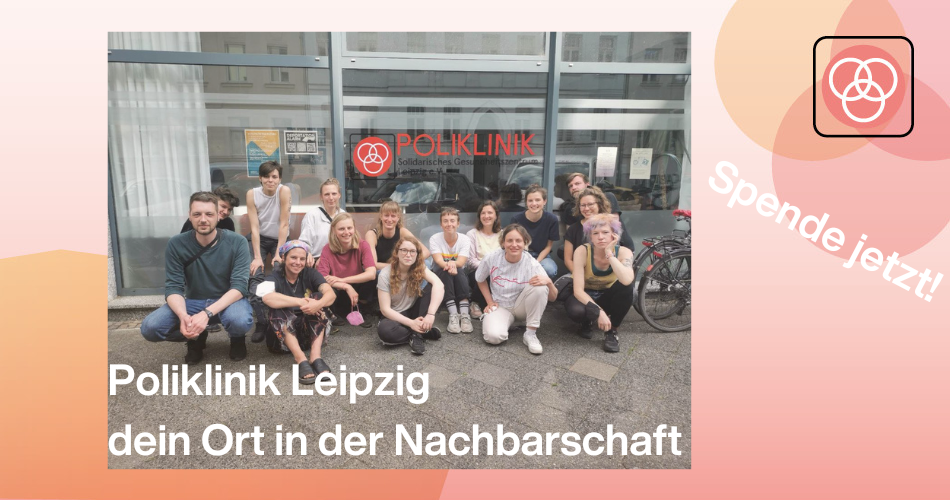
News – December 2023

For almost four years, we have been offering various health-related services in Leipzig's Schönefeld district: Advice, self-help, a neighborhood meeting place and exercise - all under one roof. Everything is free of charge, anonymous if desired and focused on the needs of the district's residents.
We have created a reliable place that now needs to be maintained and further expanded. Over 350 consultations have taken place in the current year, our weekly neighbourhood meeting is always well attended and there are always individual events taking place around it.
In addition to maintaining the current services, we have a lot of new things to do in the coming year and we need your support!
You can donate here.
Our plans for the new year:
At the turn of the year, we will finally have new premises. The current premises are no longer big enough to accommodate all our services. Fortunately, we will be able to take over additional store space in the same building so that everything can continue to take place under one roof. However, there is still a lot of remodeling and furnishing to be done there.
Since summer 2022, the Nachbarschaftstreff has become a fixed point of contact for Schönefeld residents. There is space here to chat over coffee and cake. With the meeting point, we are counteracting the increasing isolation and loneliness. In the last few months, we have increasingly invited experts to talk about topics at the meeting, and we want to expand this in the coming year. Not least to establish our topics, which revolve around (collective) health and empowerment, in the Treff as well.
The core of our consultations is the open interdisciplinary consultation hour. All of our consultations are available here, both for individual consultations and in the form of co-counseling. We have successfully established a unique counseling concept in Leipzig. The number of counseling sessions is constantly increasing, and we want to increase our counseling capacity in the future in order to meet this demand.
In addition to our regular services, we also organize a wide variety of events such as workshops, courses and lectures. Whether pottery, yoga or reanimation training, we cover a wide range of wishes and needs. We not only want to maintain this, but also constantly add to it. We are also increasingly receiving requests for information events on specific illnesses. Last year, two self-help groups were formed, which we helped to set up and which now use our premises. We consider self-help groups to be a good addition to our services, as they allow those affected to network and work on their own issues in a self-effective way. In the coming year, we want to support the establishment of further groups.
Support our plans with your donation!
You can donate here.
How we finance ourselves
Our work is made possible by various grants, sponsoring memberships and donations. Even though we receive funding from local authorities and foundations, we are dependent on funds from donations and memberships.
Some of our expenses are excluded from funding, while in other areas the grants are simply not enough. In addition, we have to make our own contribution to all grants, which we can only finance through donations and membership fees.
Who we are
Poliklinik Leipzig is run by a collective of around 20 people, eight of us have a permanent job, some are doing a voluntary service, others are doing unpaid work. The majority of us have completed training in health and social professions, such as psychology, medicine, nursing, social work or occupational therapy.
In our collective, we rely on a low-hierarchy and consensus-based way of working. We want to work on an equal footing both internally and externally and share our resources. The collective currently consists exclusively of white people; we reflect our privileges, which many of us bring with us in our specific training, even though we are currently working in a field where our jobs are often precarious due to funding commitments and available resources.